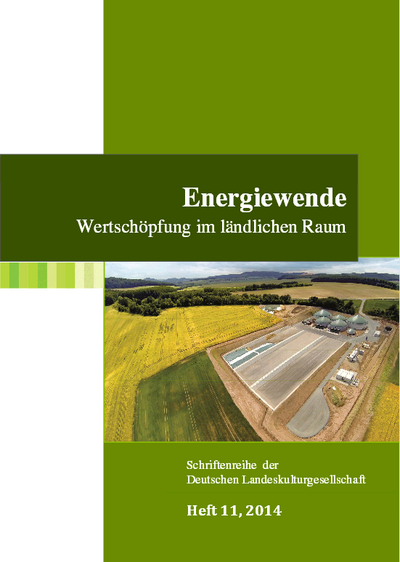Kommunale Wertschöpfung und Beschäftigung durch erneuerbare Energien Aktuelle Entwicklungen und Potenziale
In 2012 added value effects through renewable energies reached a peak of approximately 17 billion Euro in Germany, despite negative growth in employment. Added on the indirect effects, a sum of about 25 billion Euro was reached. In contrast to a centralised energy system, renewable energies become installed and applied in a decentralised manner which allows for spreading the effects on the entire country and thereby open an economic perspective for municipalities. Added value effects arise more and more from the operation process rather than from the production. With a growing stock of renewable energy plants, the added value rises accordingly. The plant production remains an important topic as well from an industrial-political point of view regarding the growing world market. Communal added value and employment effects are important aspects for the acceptance of the further expansion of the renewable energy transition as well. Reaching a maximum broadness of economic share is becoming another critical factor for the energy transition, next to partipation in its planning processes. Facing the recent debate at the beginning of a new legislative period for the grand coalition this nexus is gaining a new dynamic.
This publication is available online.



